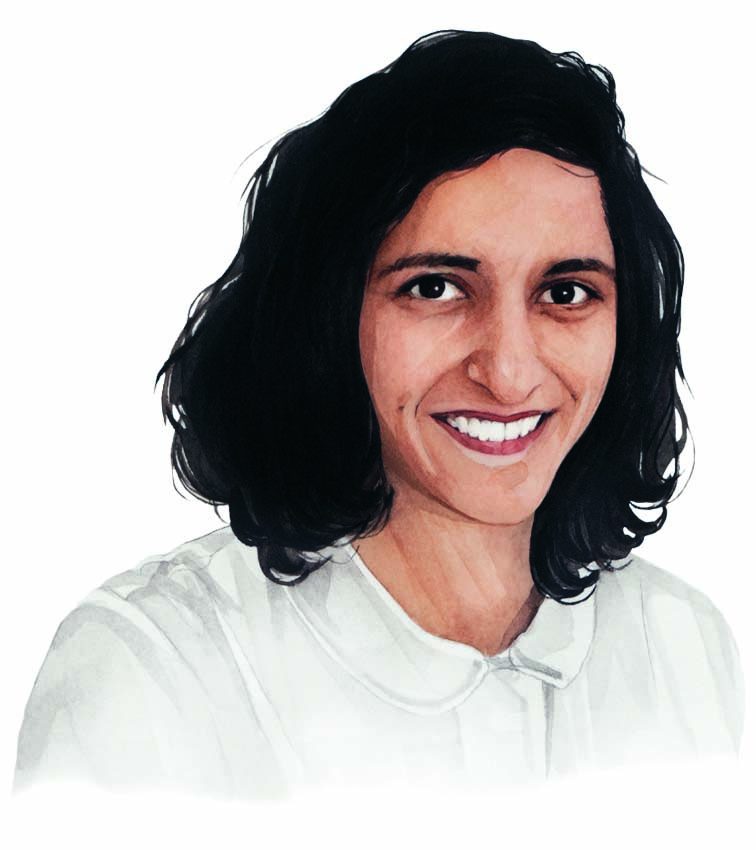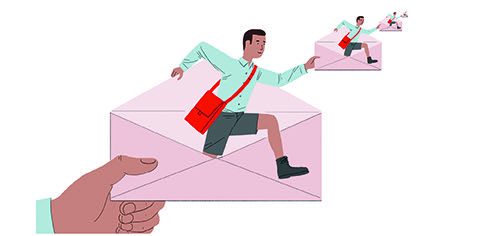Inbox 83
Editor’s letter

Seventy years ago, women were, for the first time, admitted to degrees at Cambridge. Prior to 1948, women studying at Girton and Newnham sat University exams but were unable to graduate or become members of the University. It was a landmark moment for women’s education – and for the University.
It feels appropriate that this anniversary falls in a year in which we are also marking the centenary of some women gaining suffrage – and in which many, many more women are demanding change. In this we ask young Cambridge feminists about what the movement means to them, while Sarah d’Ambrumenil, Head of the Office of Student Conduct, Complaints and Appeals explains why alumni have a role to play tackling harassment and sexual misconduct.
Elsewhere, we go behind the scenes with Cambridge’s porters to find out what this iconic role entails, and we investigate why, in politically challenging times, philanthropy is so crucial to Cambridge’s success.
On this, and all other matters, I look forward to your letters, emails and tweets – a small selection of which are below.
Mira Katbamna (Caius 1995)

Inbox
Bop on
I’d normally end the night with Only Love Can Break Your Heart (the Saint Etienne cover) when I DJed at Wolfson (CAM 82). Not because it was demanded, just because I wanted to!
Steve Bradshaw (Wolfson 2000)
I can’t remember any anthem for Fitz (88), although we did play Transvision Vamp a lot. I do recall a move to rename the bop in order to modernise it. The name ‘fip’ was suggested (fully integrated party). Clearly, it didn’t take off.
Loona Hazarika (Fitzwilliam 1988)
I don’t remember an anthem for Queens’ – can anyone help?
Helen Williams (née Stokes, Queens’ 1984)
As JCR entertainments secretary from 1970 to 1972, I inherited a proud tradition of Churchill discos in the Pavilion. I recall reproducing hand-drawn posters in Engineering, and distributing them as far away as Homerton (sadly, I can’t find an example). We also put on events in the Buttery with local rock band Wild Oats.
The ‘new’ condom machine was also installed during my period of office. I was particularly amused by correspondence with the London Rubber Company’s customer relations officer – perhaps we may have been “living off immoral earnings”? Cancellation of the 1969 Churchill May Ball saved me from the nominated task of “looking after all the needs of the headline band” at the tender age of 18. It was Black Sabbath.
David Bullock (Churchill 1969)
Female pioneers
This is a special year for me, and my contemporaries, who were admitted to Girton and Newnham in 1948. Twenty years ago, we – and all those who had preceded us as students at Girton and Newnham – were invited to celebrate the 50th anniversary of the admission of women as full members of the University.
The occasion was a very happy one. Having collected our gowns at the “vesting area” at Girton, we drove to Cambridge in four coaches, each accompanied by a police outrider. St John’s Street and Trinity Street had been closed to traffic. Bells pealed, flags flapped. King’s Parade was full of spectators who cheered as we clambered from the coaches.
As we entered the Senate House, a fanfare was played by Crispian Steele-Perkins. There were speeches and an oration delivered by the University Orator. We then proceeded to a marquee for tea and champagne.
It is now 70 years since women became full members of the University. Of my own group of eight friends (who met annually until this became difficult), three have died, along with many others who would have attended the 1998 celebration. I think it would give us survivors great pleasure if CAM would recall the momentous change in the status of female students at Cambridge in 1948 and the joyful celebration of 1998.
Kathleen Kummer (Girton 1948)
Admissions
Dr Sam Lucy’s article helped to dispel many of the myths around admissions. There has been a lot of focus in the media recently about widening access to Higher Education, and to Oxford and Cambridge in particular.
Cambridge already does a great job with link colleges for each area of the country. As a senior teacher in a state comprehensive in south Wales, I accompanied some of our brightest year 12 students to a very inspiring talk recently from Dr Jonathan Padley (Churchill). The Welsh government’s Seren programme, now in its third year, is having a big impact on the number of students considering and applying to Cambridge.
The problem that state schools face is that without past students who attended Cambridge or Oxford, running mock interviews or masterclasses in niche subjects can be very difficult.
I would urge CAM readers to get involved. If you want to help the next generation and widen access to Cambridge, please contact your local state comprehensive or sixth form and ask what you can do to help. Those of us already in education are not the best interviewers as we already know the students!
Lucy Bunce (King’s 1993)
I read Dr Lucy’s article on admissions with great interest (CAM 82). Were I to go through this process now, I wouldn’t have a hope of being accepted; I was a prime example of someone who benefited from the outdated system of “connections”.
Many members of my family, going back several generations, were at Trinity, and this proved the deciding factor. I didn’t have to sit an entrance exam; instead, I had lunch with Harry Williams, the admissions tutor, and was told, “Yes, you can come, as long as you get your physics A Level” (I had failed it the first time round). So I came in 1959 as a budding medic, managed to get my degree, and qualified in 1965.
Perhaps I should never have been accepted, but I went on to have a reasonably successful career in general practice. I suppose my patients would be the only people to say if I should have been allowed to become a doctor! But I must thank Trinity for the lenient and informal, if now unacceptable, admission system they had 60 years ago.
Tim Paine (Trinity 1959)
Praise
Your magazine has been a source of great joy to me throughout the years and I always find myself eagerly awaiting the next issue.
Maria Haka Flokos (Girton 1980)
Write to us
We are always delighted to receive your emails, letters, tweets and facebook posts.
- By email
- cameditor@alumni.cam.ac.uk
- By writing
- CAM, 1 Quayside, Bridge Street, Cambridge, CB5 8AB
- By Twitter
- @Cambridge_Uni
- By Facebook
- facebook.com/cambridgealumni
Please mark your letter ‘For publication’. Letters may be edited for length.



